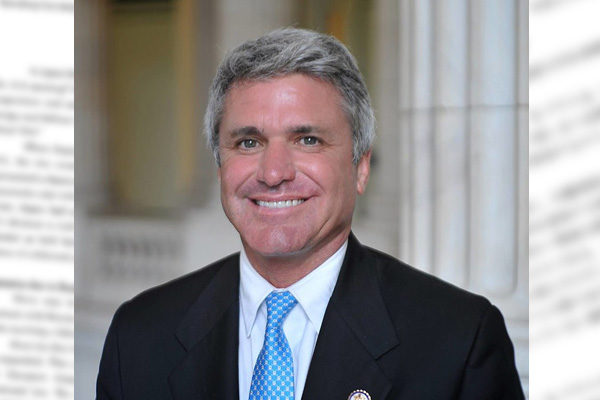The Republican Party won a majority in the U.S. House of Representatives through midterm elections earlier this month, meaning that Republicans will occupy the House speaker post and all House committee chairs to take leadership in the House from next January.
Michael McCaul, who is now Republican ranking member of the House Foreign Affairs Committee and poised to take its chair next year, is known as the most outspoken critic of China.
Hard-liner to chair House Foreign Affairs Committee
After the Senate Foreign Relations Committee overwhelmingly passed the Taiwan policy bill designed to enhance Taiwan’s defense capabilities and international status by 17 to five on September 14, the House was slow to act. Managing parliamentary proceedings in the House has been Speaker Nancy Pelosi, who is détente-oriented like President Joe Biden, though having attracted global attention by visiting Taiwan in August.
Frustrated by the delay, McCaul and 36 other fellow Republicans submitted a Taiwan policy bill of their own to the House Foreign Affairs Committee on September 28. The bill, though basically in line with the bipartisan Senate version, took a tougher stance toward China. For instance, it calls for ending the “outdated” practice of referring to the government in Taiwan as the “Taiwan authorities” in stead of “Taiwan government.”
In the days ahead, the House Foreign Affairs Committee may lead a tougher China/Taiwan policy. Japan’s government and parliament should closely watch and quickly respond to relevant U.S. developments.
In October, the U.S. government came with new rules to strictly restrict the export to China of cutting-edge semiconductors and their manufacturing equipment, keeping especially artificial intelligence and supercomputers in mind.
McCaul, who had criticized the Commerce Department’s Bureau of Industry and Security (BIS) for its “timid” use of export restrictions against China, issued the following statement on the new rules:
“These rules are a step in the right direction and a long time coming. If BIS implements and enforces these rules to the strictest of standards, then it will strike at the core of the CCP’s [Chinese Communist Party’s] strategic objectives. We look forward to receiving full transparency from the Commerce Department on how BIS is approving or denying licenses. Lax licensing standards would undermine the intent of what these rules aim to achieve.”
How strictly the Republican-led House would supervise and assess the Commerce Department’s implementation of export restrictions is of great significance.
Decarbonization fundamentalism may be braked
Regarding climate change, the Republican Party has taken a position of brushing aside decarbonization fundamentalism hostile to fossil fuels and seeking feasible CO2 emission cuts through technology development, while giving priority to the achievement of energy independence and the maintenance of U.S. companies’ international competitiveness.
Under the Trump administration, in fact, the United States became the world’s largest oil and natural gas producer in a manner to almost achieve energy independence and achieved the world’s largest CO2 emission cuts in volume, according to the International Energy Agency.
Democrat-led climate change countermeasures may be braked or fail to be renewed, including massive subsidies to solar and wind power generators, and various regulations and tax hikes that impede oil and natural gas companies’ business operations and discourage their investment.
The Biden administration may maintain decarbonization fundamentalism. But Japan should coolly watch the entire picture of U.S. politics and think and act independently, instead of being led easily by superficial U.S. policies before finding its eventual loss of U.S. support.
Yoichi Shimada is a senior fellow and a Planning Committee member, Japan Institute for National Fundamentals, and a professor at Fukui Prefectural University.


